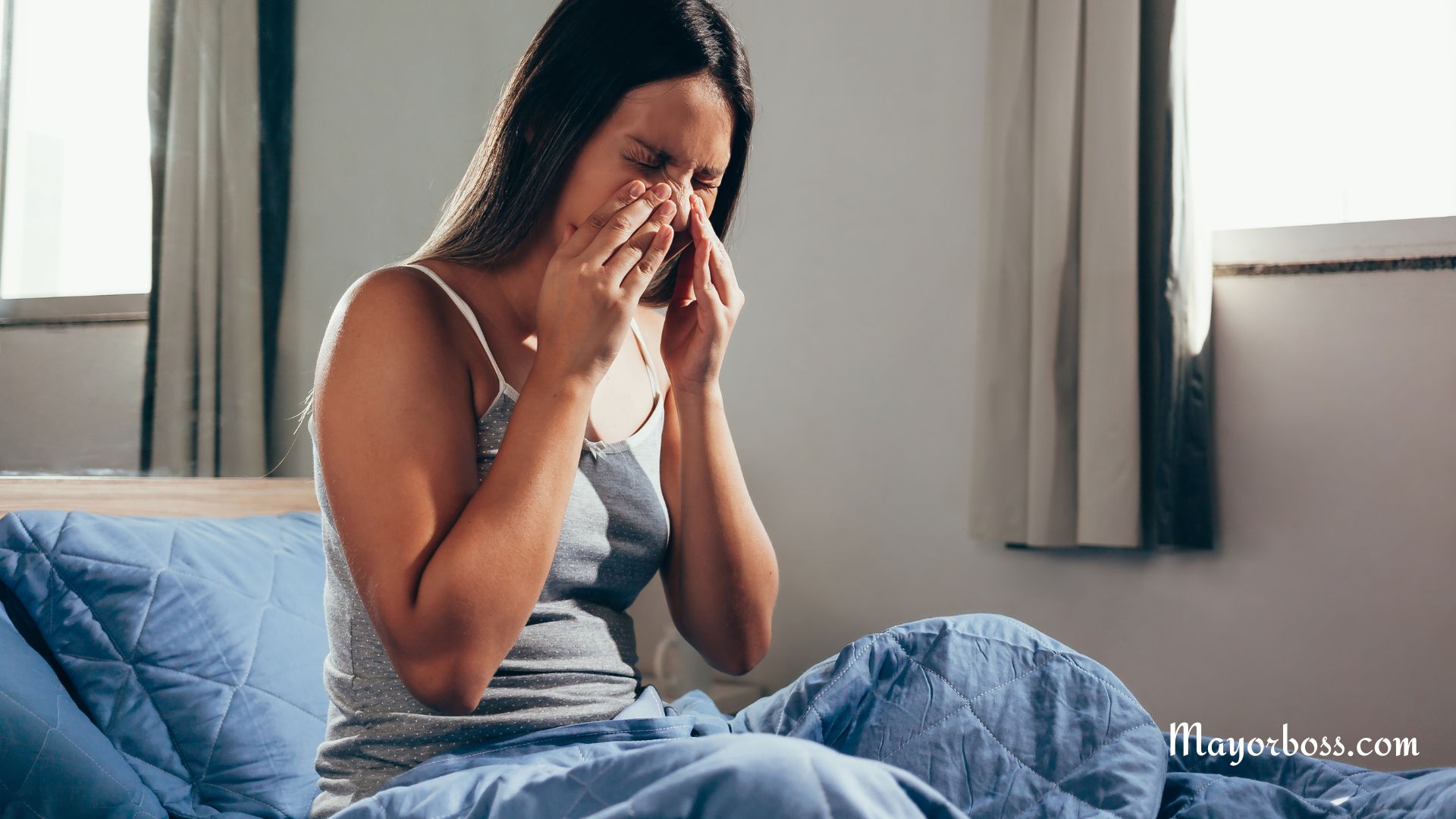What Causes a Dry Nose at Night?
Waking up with a dry nose can be a real bummer. It can leave you feeling uncomfortable and congested and even disrupt your sleep. But what exactly causes this annoying nighttime dry nose?

Common Causes of a Dry Nose at Night
Several factors can contribute to a dry nose during sleep, including:
1. Environmental factors
- Low humidity: During winter months, the air outside and inside your home can become significantly drier. This lack of moisture in the air can dry out the delicate lining of your nasal passages, leading to a dry and irritated nose.
- Air conditioning and heating: Both air conditioners and heaters remove moisture from the air, further contributing to nasal dryness. This effect is particularly noticeable during long periods of use in the bedroom at night.
- Dusty environments: If you live in a dusty environment, the dust particles can irritate and dry out your nasal passages, especially while sleeping.
2. Medical conditions
- Allergies: Seasonal allergies can cause inflammation and irritation in the nasal passages, resulting in a dry, itchy nose.
- Sinus infections: These infections can lead to dryness, irritation, and even crusting within the nose and sinuses.
- Dehydration: If you’re not drinking enough fluids throughout the day, you may become dehydrated, which can manifest as a dry nose, particularly at night.
- Medications: Some medications, such as decongestants and antihistamines, can dry the nasal passages as a side effect.
3. Lifestyle habits
- Mouth breathing: While sleeping, some people breathe through their mouths instead of their noses. This can dry out the nasal passages, leading to dryness and irritation.
- Smoking: Smoking irritates and damages the delicate lining of the nasal passages, contributing to dryness and other problems.
- Overuse of nasal sprays: Although nasal sprays can provide temporary relief from congestion, overuse can lead to rebound congestion and dry out the nasal passages.
Additional factors to consider
- Age: As we age, our bodies naturally produce less moisture, which can contribute to a dry nose.
- Travel: Traveling by plane or to high-altitude locations can expose you to drier air, leading to a dry nose.
- Hormonal changes: Women may experience a dry nose more often during pregnancy and menopause due to hormonal fluctuations.
Combating a dry nose at night
Fortunately, there are several things you can do to alleviate a dry nose at night and improve your sleep quality:
- Breathe Through Your Nose: Train yourself to breathe through your nose while sleeping. This can be achieved by using nasal strips or placing a small pillow under your chin to keep your mouth closed.
- Increase humidity: Use a humidifier or vaporizer in your bedroom to add moisture to the air and prevent your nasal passages from drying out. The humidity level is between 40% and 60%.
- Drink plenty of fluids: Stay hydrated all day by drinking plenty of water and other fluids. This will help keep your nasal passages moist.
- Avoid irritants: Reduce your exposure to irritants like dust, smoke, and strong smells.
- Clean your nose regularly: Use a saline nasal spray or a neti pot to gently clean and moisturize your nasal passages.
- Treat underlying conditions: If you have allergies or other medical conditions that contribute to a dry nose, seek appropriate medical treatment.
- Use a nasal lubricant: Consider using a petroleum jelly-based nasal lubricant before bed to help keep your nasal passages moist.
- Elevate your head: Prop yourself up with pillows while sleeping to promote better drainage and reduce dryness.
- Quit smoking: Smoking is detrimental to your overall health and can worsen a dry nose. Quitting smoking will significantly improve your nasal health and overall well-being.
Talk to Your Doctor
If your dry nose is persistent or accompanied by other symptoms like bleeding or crusting, consult your doctor to rule out any underlying medical conditions.
Further Reading: Home Remedies for Dry Nose
